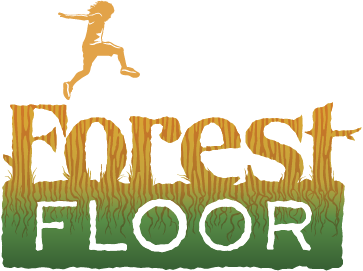There are a lot of benefits and conveniences that come from recent technological advancements: ease of communication, increased work efficiency, and access to tons of information, to name a few. Though I’m grateful for all these benefits, in our fast-paced digital world, helping children to develop a deep connection to the natural world is not one of them.
This is one reason why Forest Floors approach to education, what we call Coyote Mentoring, stands out as a shining beacon in the techno-fog for educators and parents seeking to cultivate a profound bond between the young and the wilderness. Drawing inspiration from ancient indigenous practices, this approach prioritizes lived experience, firsthand observation, and captivating storytelling as primary tools for learning. Though Coyote Mentoring is a skill that spans the ages and is still alive today in some of the best educators – whether they call it Coyote Mentoring or not – it likely sounds unfamiliar to most folks today. So here we’ll delve into the basic concepts and approach of Coyote Mentoring, highlighting its potential in reviving the lost connection between children and nature.
Check out our Mind of the Mentor training for for educators, counselors, homeschoolers, parents, eco-activists, mentors, and outdoor enthusiasts.
At its heart, Coyote Mentoring embodies the spirit of the ‘Coyote’ — a character found in many Native American legends, and known for its cunning, playfulness, and ability to teach valuable lessons in unexpected ways. Just as Coyote imparts knowledge through its unpredictable nature, Coyote Mentoring places emphasis on sparking curiosity and learning through surprise, wonder, and by taking advantage of the unexpected opportunities presented by the natural world. At Forest Floor we embrace the notion that “Nature is Always Teaching.” Instead of a structured classroom environment, lessons are held in the original School of the Wild… where every rock, stream, and creature becomes a potential teacher.

Our method is steeped in the principle of mentoring rather than just teaching. This means that the mentor’s role isn’t to provide answers directly, but rather to guide the mentee with thought-provoking questions, nudging them to seek answers through exploration and observation. This Socratic-style of questioning encourages critical thinking, self-discovery, and a heightened sense of awareness. The result is a well-rounded and empowering “common sense” applicable to all areas of life, not just naturalist studies.
The question “Who doesn’t love a good story?” answers itself. This is why throughout history indigenous communities have passed down knowledge through the oral tradition of storytelling, and why stories are an essential component to Coyote Mentoring. Stories have the power to convey lessons and values, to spark curiosity, and to stoke the flames of enthusiasm in anyone. By weaving together instructional and enchanting tales that incorporate key elements of the days lessons, children are primed for an unforgettable journey into the forest that intertwines knowledge with imagination. Whether a personal account of getting lost on a hike, or a mythical telling of the origins of fire, our instructors utilize this age-old practice in our programs to great effect.

Looking beyond the personal, this approach also emphasizes the importance of community in learning. In a wilderness setting where the natural elements can be a bit more physically demanding than a couch or desk, group activities and challenges serve to foster teamwork, communication, and a shared responsibility for the environment. Children learn not just as individuals, but as part of a collective, understanding that every member plays a vital role in the well-being of the group and the larger ecosystem.
I hope this helps to illustrate some of the ways Coyote Mentoring offers a refreshing departure from more conventional methods of education, reminding us of the timeless lessons the natural world holds. Through the potent synergy of mentoring, storytelling, and community-centric activities, this approach ensures that children not only gain knowledge but also develop a deep-rooted love of and respect for our environment. And in a world where nature often sits overlooked in the background as we gaze into our screens, its encouraging to know that methods like these remain alive and available to help guide our awareness back to the primal bonds we share with the earth.

Check out our Mind of the Mentor training for for educators, counselors, homeschoolers, parents, eco-activists, mentors, and outdoor enthusiasts.

